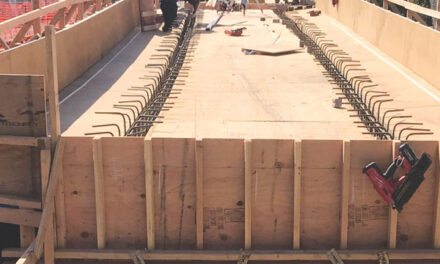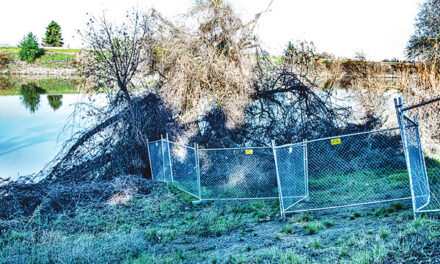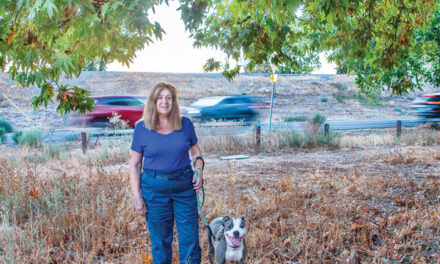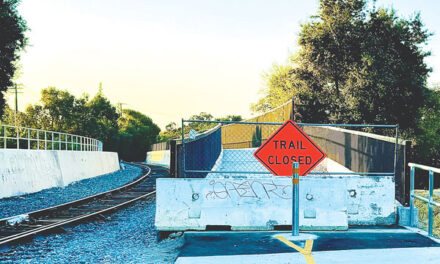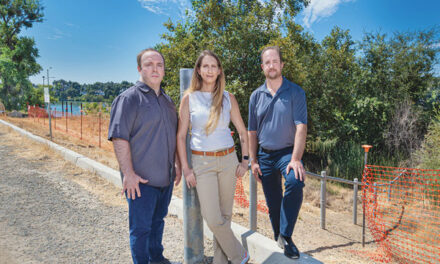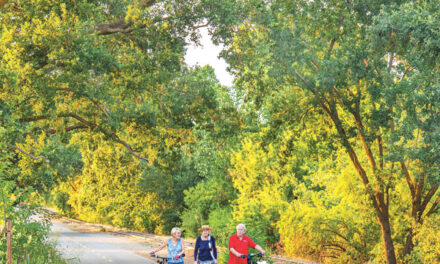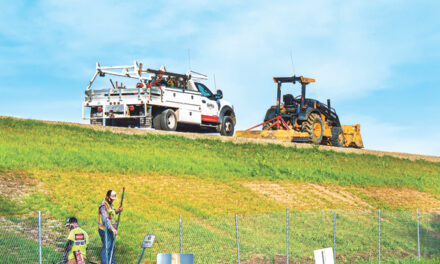Climate change is a crisis, but we’re reacting like frogs in pots of water slowly being brought to boil. We’re largely blissfully ignoring rising planetary temperatures, though the consequences of inaction are dire: widespread crop damage, fires mindboggling in size, intense hurricanes, and sea-level rises devastating in scope and cost. It’s not practical to get off the planet. We must turn down the heat.
Transportation accounts for 40 percent of California’s greenhouse gas production, the gases that are warming the atmosphere. We need to fundamentally change how we travel to avert, or at least moderate, the pernicious effects of climate change.
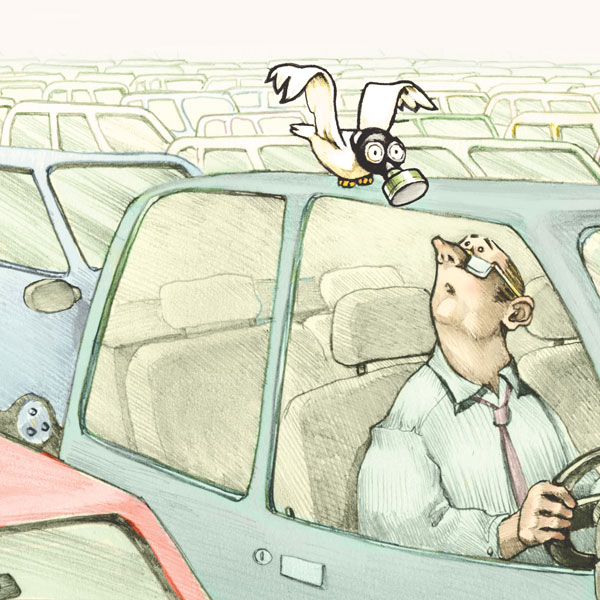
Change is never easy, especially when the automotive industry spends $34 billion annually just on advertising. We are constantly enticed to buy cars and trucks. The ads don’t mention burning scarce fossil fuels and road mayhem. We don’t see commercials urging transit use, biking and walking.
Big Oil has lied to and misled the public (and its own shareholders) about climate change. They know better—their business is based on science—yet the industry has cultivated climate-change deniers who believe science is just another opinion.
Elected officials, who ultimately control the way tax dollars are spent on transportation, have not experienced much pressure from a generally complacent public to steer away from business as usual. Instead, politicians get pressure from industry.
We need to start now to change how we travel. The Mayors’ Commission on Climate Change, a joint Sacramento and West Sacramento effort, has called for 30 percent of all trips to be made by active transportation (primarily walking and biking) by 2030, with another 30 percent made by transit. That’s a radical shift from our current overreliance on single-occupant vehicle trips. Given how long it takes to plan and build transportation projects, those active transportation and transit goals are a cry for urgent action.
Unfortunately, the need for transportation transformation is not reflected in transportation plans. The draft regional plan, the Metropolitan Transportation Plan/Sustainable Communities Strategy, calls for a 19-percent reduction in per-capita greenhouse gas emissions by 2040.
Given a projected 25-percent increase in population, that means a net increase in greenhouse gases. Instead of aiming for 60 percent of trips to be made by active transportation and transit by 2030, the plan projects a marginal increase of such trips, from 11.5 percent in 2016 to a mere 14.3 percent by 2040.
The last Sacramento County transportation sales tax proposal, defeated by voters in 2016, was decidedly auto-centric with a primary commitment to burning oil. To get support from environmentalists and anybody who has noticed that California fires are a problem, the tax proposal being crafted for the 2020 ballot needs to go much further in funding transit, bicycle and pedestrian projects. Time for change is running out.
In October, I attended an active transportation symposium. I heard inspirational presentations. I met well-meaning, well-educated people who knew what could be done to change the transportation paradigm. Yet I felt frustrated. Twenty years ago, I heard similar inspirational talks from the same kinds of bright, committed people. The enduring problem is that they don’t control transportation budgets.
If you are a Boomer, Gen Xer, Millennial or in Gen Z and want to save the planet for your children, say so out loud. Call, write or email your elected officials. Vote for transportation measures that change the status quo. Vote for politicians who care more about Mother Earth than phony economic arguments and contributions from industry. The public needs to be upset about the path we’re on—and express it.
As Kermit says, it’s not easy being green. But we must. We can recycle, adjust the thermostat and choose wisely how we get around. Those are all good things, but they aren’t enough.
We have to be smarter than frogs. We need to call upon our elected representatives to make broader, society-wide changes. We must get the message to politicians and their staffs that this is vitally important and urgent. There are many significant political issues swirling around. It’s not an overstatement that the world depends on this one.
Walt Seifert is executive director of Sacramento Trailnet, an organization devoted to promoting greenways with paved trails. He can be reached at bikeguy@surewest.net. Follow us on Facebook, Twitter and Instagram: @insidesacramento.



